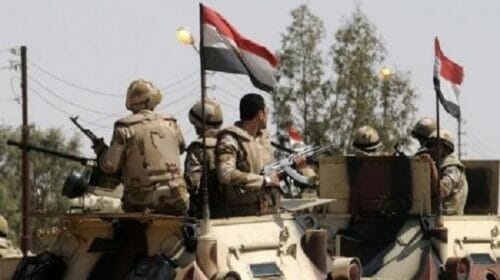Egypt explained: 6 key questions
A month after mass protests led to the ouster of President Mohamed Morsy, Egypt is still in turmoil.
Morsy’s removal, carried out by the military on July 3, has angered his supporters and created deep division in the country. In some cases, the tension has led to violence.
Hundreds have been killed and thousands have been injured in recent weeks, either in clashes between opposing protesters or in clashes between protesters and Egyptian security forces.
As the military worked Wednesday to clear two massive makeshift Morsy camps, fires burned and tear gas flew. And while displaced protesters moved to regroup, there were fears that the violence would only get worse.
How did Egypt get to this point? Where does it go from here? Let’s hit the reset button.
1. Why was Morsy removed?
Morsy became Egypt’s first democratically elected president in June 2012, almost a year and a half after popular protests forced the resignation of Hosni Mubarak, who had ruled the country for 30 years.
 Pro-Morsy protesters bracing for worst
Pro-Morsy protesters bracing for worst Cairo’s tent city
Cairo’s tent cityMorsy was accused of authoritarianism and trying to force the Brotherhood’s Islamic agenda onto the nation’s laws. He was also criticized by many Egyptians frustrated with rampant crime and a struggling economy that hadn’t shown improvement since Mubarak resigned.
But Morsy’s supporters say Morsy repeatedly offered Cabinet positions to secularists and liberals and was repeatedly rejected.
And there is a widely held view among analysts that remnants of the Mubarak regime and powerful elements within the Interior Ministry and judiciary never supported Morsy’s presidency and may have conspired to undermine him. They say the frequent absence of police in the streets until after his overthrow is one example, and the judiciary’s dissolution of the lower house of parliament last year is another.
Supporters also point out that Morsy and Egypt’s leading Islamist factions had a democratic mandate after winning five elections since 2011, and that initially only a quarter of his Cabinet members represented the Muslim Brotherhood or its allies, a proportion that later grew to roughly one-third.
Nonetheless, large-scale protests began on June 30, the first anniversary of Morsy’s election. Egypt’s influential military gave Morsy an ultimatum: Meet the demands of the people, or we’ll step in.
When a 48-hour deadline passed, the military arrested Morsy, completing the coup. But those who celebrated Morsy’s removaldon’t see it as a coup. They call it a correction, a continuation of the revolution that began with Mubarak’s resignation in 2011.
2. Where is Morsy now?
Morsy is being held at an undisclosed military facility, facing a variety of criminal charges. He has not been seen publicly since his removal, although he has met with an African Union delegation as well as Catherine Ashton, the European Union’s foreign policy chief.
Morsy is being held in relation to a jailbreak that took place during Egypt’s 2011 revolution — well before he came to power, state media reported. Prosecutors have said the escape of Morsy and 18 other Muslim Brotherhood members, among others, was plotted by “foreign elements” including Hamas, the Islamic Palestinian Army and Hezbollah. The Muslim Brotherhood was named as a domestic group that cooperated with those who broke them out of prison.
Morsy is accused of escaping, destroying the prison’s official records and intentionally killing and abducting police officers and prisoners.
 Plea from son of Egypt’s Mohamed Morsy
Plea from son of Egypt’s Mohamed Morsy
 Egypt: Who’s in charge?
Egypt: Who’s in charge?
 Egyptians fear more bloodshed to come
Egyptians fear more bloodshed to come
Some of Morsy’s allies have also been jailed since the coup. Leading members of the Freedom and Justice Party — the Brotherhood’s political arm — were arrested on charges that party officials say are illegal and politically motivated.
3. Who’s protesting, and why?
Since Morsy’s ouster, supporters of the Muslim Brotherhood and the Freedom and Justice Party have staged mass rallies and sit-ins across Egypt.
There have also been rival rallies to support the army’s effort to remove Morsy.
Muslim Brotherhood officials said on the group’s website that they will continue protesting until Morsy is put back in office. They say Morsy’s removal is an illegitimate coup and they refuse to accept its validity. They refuse to recognize the interim government or cooperate with it.
Muslim Brotherhood spokeswoman Mona al Qazzaz accused the military and opposition of “killing the biggest democracy in the Middle East.”
“The military stepped in, and the opposition that failed to win through the ballot boxes came on the back of the tanks,” she said last month.
Yet many activists, such as June 30 Front spokesman Ahmed Hawary, said Morsy left the military little choice but to intervene. Yes, Morsy was democratically elected, but he didn’t give those opposed to him any way to check and challenge what he was doing, according to Hawary.
“Democracy is due political process,” Hawary said. “But there has never been a due political process (under Morsy).”
Tensions grew Wednesday as Egyptian security forces moved on two massive makeshift camps that supporters of Morsy had set up, bulldozing tents and escorting away hundreds of protesters.
Within three hours of the raid, forces had cleared the smaller of the two camps — the Nahda camp, near the Cairo University campus.
But the larger — near the Rabaa al-Adawiya mosque in eastern Cairo — has proven trickier, with forces facing heavy resistance. The military called in its special forces.
Ahead of Wednesday’s developments, Egypt’s government signaled plans to disperse Morsy supporters.
“The acts of terrorism and the blocking of roads are no longer acceptable and represent a threat to national security and terrorize citizens,” said Information Minister Durriya Sharaf el-Din.
Interim Prime Minister Hazem El-Beblawi told CNN’s Christiane Amanpour that the government is merely trying to restore order after a month of chaotic demonstrations.
Human rights groups are urging caution.
“To avoid another bloodbath, Egypt’s civilian rulers need to ensure the ongoing right of protesters to assemble peacefully, and seek alternatives to a forcible dispersal of the crowds,” said Nadim Houry, deputy Middle East director at Human Rights Watch.
4. Who’s in charge?
Since taking power from Morsy, Egypt’s military has installed an interim civilian government with Adly Mansour as interim president. Mansour is a 67-year-old judge who heads the country’s Supreme Constitutional Court. Days after he was sworn in, he issued a decree that gave himself some legislative power and outlined a path toward new elections.
Egypt’s interim vice president is prominent Egyptian reformistMohamed ElBaradei, who won a Nobel Peace Prize for his work as director general of the U.N. International Atomic Energy Agency.
But Egypt’s generals, the ones who oversaw Morsy’s ouster and led the country for a year after Mubarak’s resignation, still wield significant power.
For instance, it was Gen. Abdel Fattah al-Sisi, the country’s defense minister, who recently called for mass protests in support of the military, not the president. Al-Sisi asked supporters to provide a “referendum to take firm action against violence and terrorism.”
5. Where does the United States stand?
The United States has been reluctant to choose sides in Egypt’s political standoff, with President Obama and U.S. officials stressing that the main priority is minimizing violence and ensuring inclusiveness in the political process.
However, when he was asked Thursday why the U.S. wasn’t “taking a clear position” on Morsy being deposed, Secretary of State John Kerry replied, “The military was asked to intervene by millions and millions of people, all of whom were afraid of a descendance into chaos, into violence.
“And the military did not take over, to the best of our judgment so — so far. To run the country, there’s a civilian government,” he said. “In effect, they were restoring democracy.”
Muslim Brotherhood spokesman Gehad El-Haddad denounced Kerry’s words and accused the Obama administration of being “complicit in the military coup.”
“Is it the job of the army to restore democracy?” he asked.
Egypt has long been a close ally of the United States. The country gets $1.3 billion in annual U.S. military aid.
But if the U.S. formally labels Morsy’s removal as a coup, it would have to cut off that aid, and that “would limit our ability to have the kind of relationship we think we need with the Egyptian armed forces,” said Gen. Martin Dempsey, chairman of the Joint Chiefs of Staff.
In the last 30 years, only Israel has received more aid than Egypt from the United States.
The United States helps Egypt because it’s one of only two Arab countries — along with Jordan — that made peace with Israel. If Washington pulls its aid, it could affect prospects for peace in the Middle East.
“All of these things are tied together,” CNN’s Fareed Zakaria said. “The aid is tied to Egypt’s peace treaty with Israel. So if our aid gets cut off, what happens to the peace treaty with Israel? It’s a hornets’ nest, and that’s why the administration is trying not to stir it too much.”
6. What might the future hold?
Aside from the immediate fears of violence, many are concerned about what Morsy’s removal could mean for democracy in the region.
“What are you going to tell Islamists: that democracy is for everybody except them?” Amanpour asked.
All eyes will be on the Muslim Brotherhood. Once the nation’s dominant political force, will it become a part of the new government or go back to being a thorn in the side of the Egyptian army?
“Despite the fact that many people are fantasizing that this is the end of the Islamist movement,” the country will continue to “have to deal with the Brotherhood either as a political movement or underground movement,” CNN’s Ben Wedeman said.
And in a country grappling with poverty and unemployment, any new government needs to work quickly if it wants to maintain power.
If the situation worsens, “people may rise up because the price of bread is too high and they just can’t feed their families,” Wedeman said. “If that happens, it’s utter chaos — back to 1977 and the bread riots in Cairo. … That’s the gut worry of everyone.”
Kerry recently called this a “pivotal moment for Egypt.”
“Over two years ago, the revolution began,” he said in a statement last month. “Its final verdict is not decided, but it will be forever impacted by what happens now.”
Source: cnn.com



